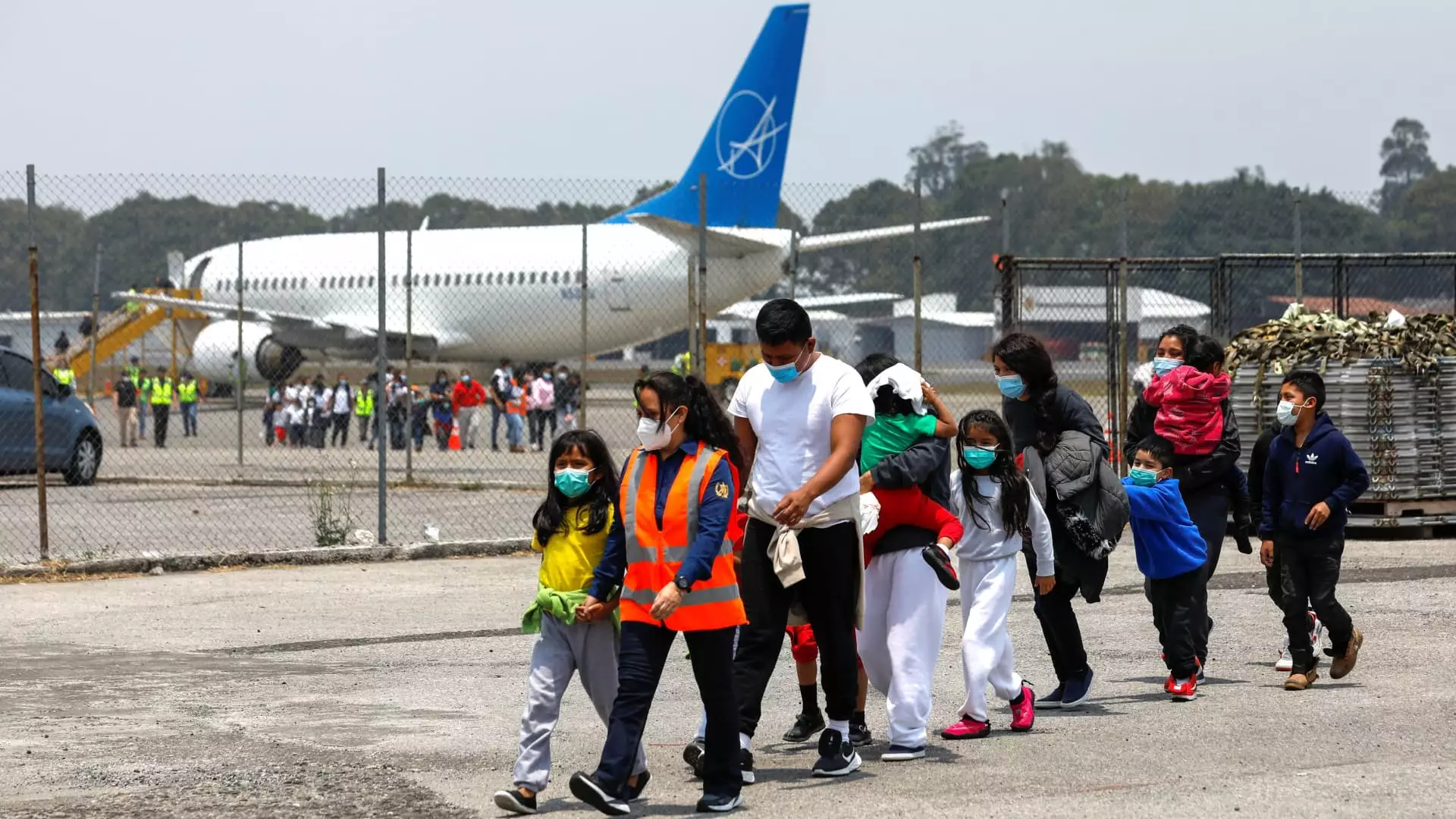It is heartbreaking to witness a system fraught with errors that directly impacts the lives of the most vulnerable among us. The recent ruling by U.S. District Judge Brian Murphy reveals a distressing truth about the current state of our immigration system: errors, neglect, and bias have become part and parcel of a process intended to safeguard those fleeing persecution. The case of a gay Guatemalan man known as O.C.G. encapsulates this grim reality, casting serious doubt on the integrity of the U.S. government’s deportation policies. The Judge’s concern that “the events leading up to this decision are troubling” encapsulates the fears many of us share. If justice can be so easily bypassed, what assurance do we have that the most basic human rights are upheld?
O.C.G.’s case wasn’t merely one of miscommunication or bureaucratic oversight; it was an act that disregarded his very humanity. Deported to Mexico despite credible fears for his safety, he was forced into an utterly unacceptable predicament. Being a member of the LGBTQ+ community in Latin America often equates to facing persecution, and O.C.G. was no exception, having fled death threats directly tied to his sexual orientation. The Justice Department’s admits to an error but offers no solutions to prevent similar tragedies from occurring in the future. This is not just a lapse in judgment; it is indicative of a larger systemic failure that must be addressed urgently.
The Illusion of Due Process
Judge Murphy’s observations about due process reveal that our legal framework is teetering on the brink. “Due process is, in some sense, a binary,” he remarked, highlighting that the basic rights guaranteed by our Constitution have been cavalierly ignored in the brutal march towards aggressive deportation policies. O.C.G.’s situation was classically mismanaged, where a critical lack of communication in the Immigration and Customs Enforcement (ICE) process filtered into a life-threatening legal misjudgment. The very institution designed to provide safety and refuge has instead become a mechanism for fear and repression.
How can we sit idly by, knowing that others like Kilmar Abrego Garcia are also caught in this web of mismanaged justice? Garcia was deported to El Salvador against a protective order designed to keep him safe. The stark comparison here is unparalleled—both men were subjected to an immigration process that treated their lives as mere collateral damage in a larger, unfeeling game of politics. Every time an individual is wrongly deported, it is as if a decision has been made that their life holds less value than a mere statistic.
A Call for Compassionate Leadership
The complicity of the Trump administration throughout all of this cannot be overstated. There exists a burgeoning divide between the actions of federal agencies and the core American values of liberty and justice for all. Moreover, the indifference exhibited by the Department of Homeland Security and the White House to respond to inquiries concerning O.C.G.’s case is a telling sign that the administration is sorely lacking in both empathy and accountability. The failure to act responsibly demonstrates a disturbing trend: one where bureaucratic pressure supersedes the urgent needs of individuals facing dire circumstances.
The ruling concerning O.C.G. should serve as a rallying cry for all who believe in human rights and dignity, demonstrating that it is possible to rise against a system that prioritizes punishment over protection. It showcases a determined Judge who, despite being appointed by a president from opposition parties, made the morally correct decision based on the tenets of justice and humanity.
In a time when compassion has been relegated to political theatre, it becomes incumbent upon us to advocate for a humane immigration policy and truly reflect the values upon which our nation was founded. More than ever, the message is clear: our laws must evolve to protect the rights of individuals, regardless of their nationality, gender identity, or sexual orientation.


Leave a Reply